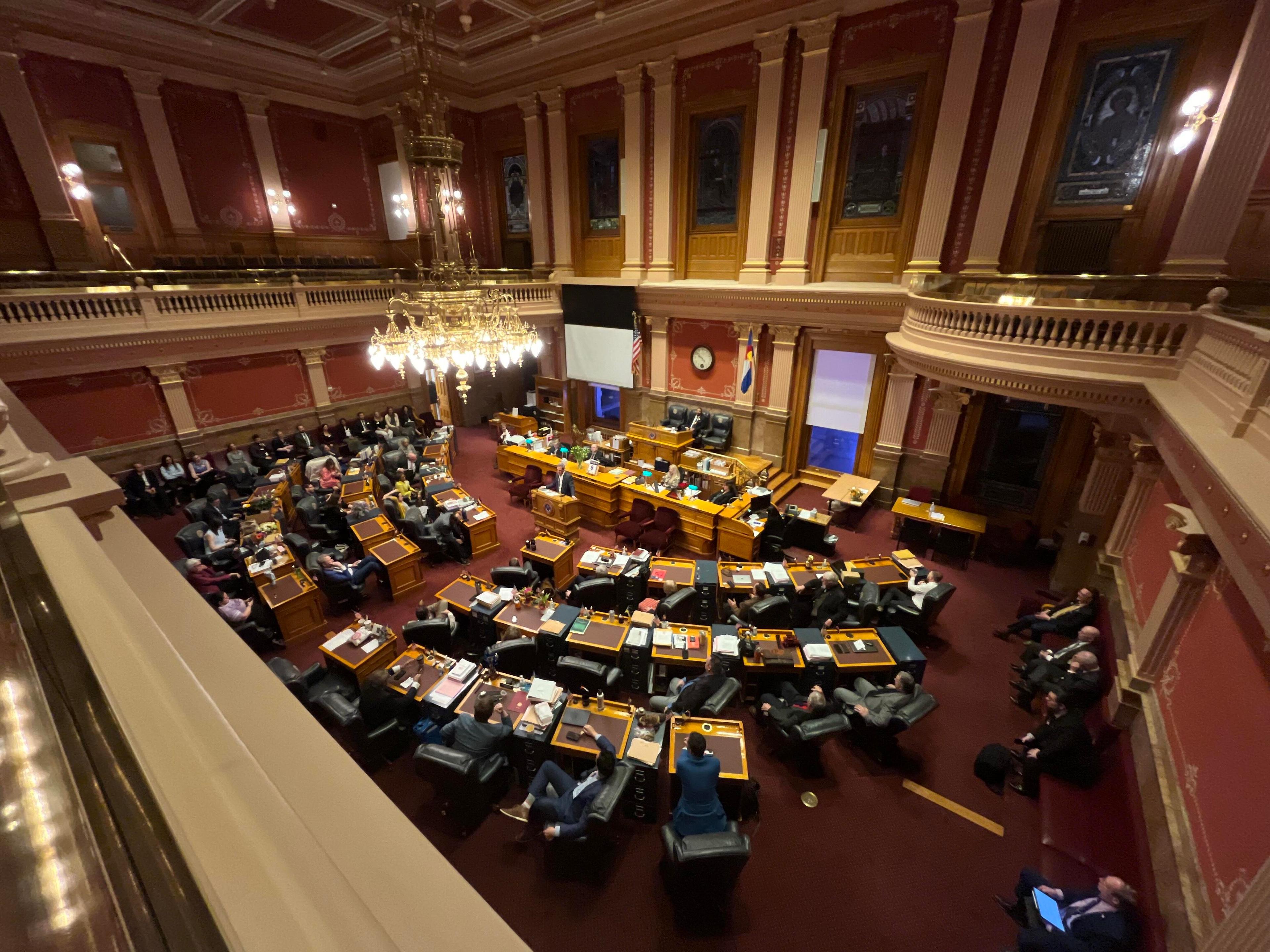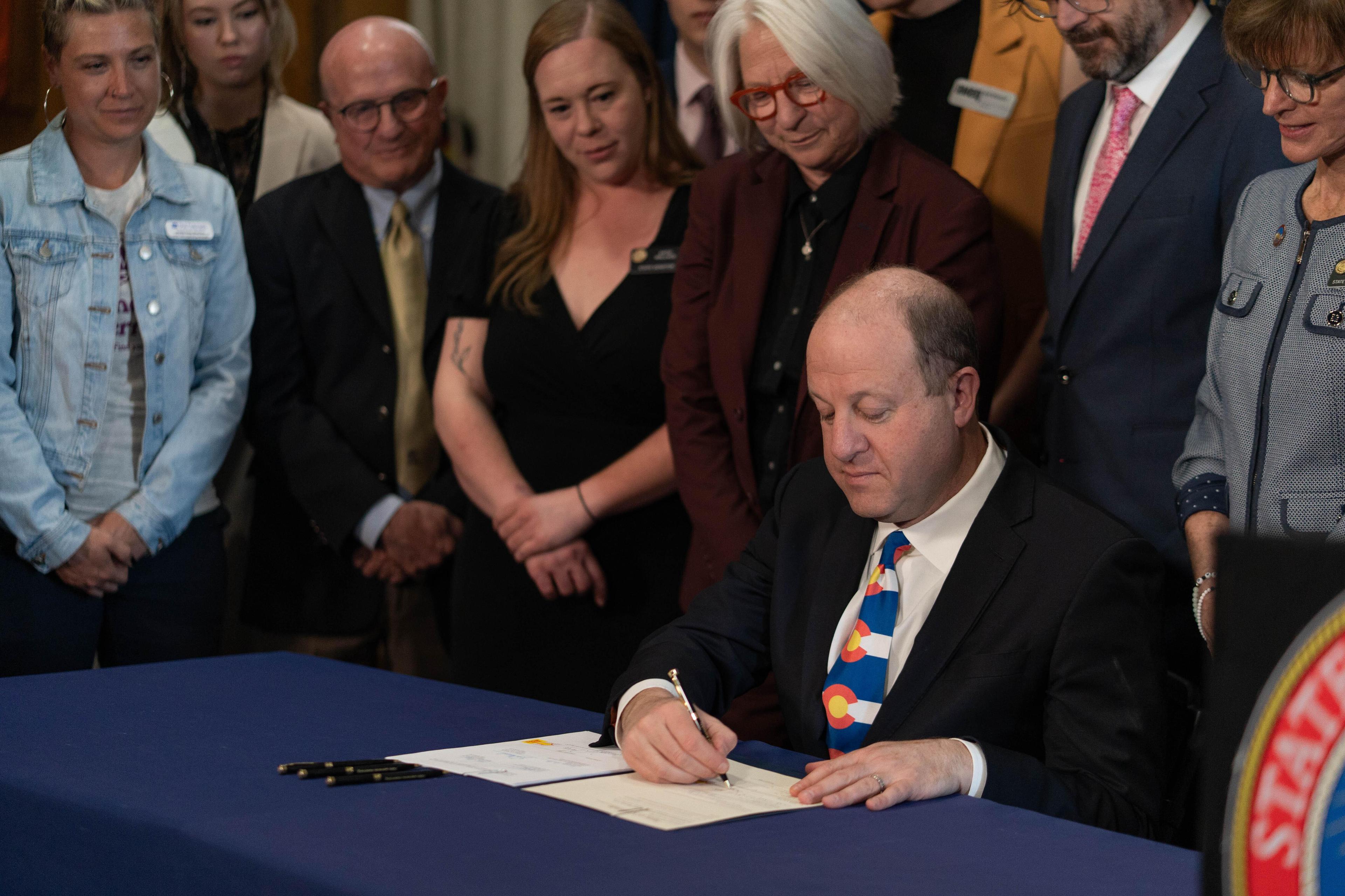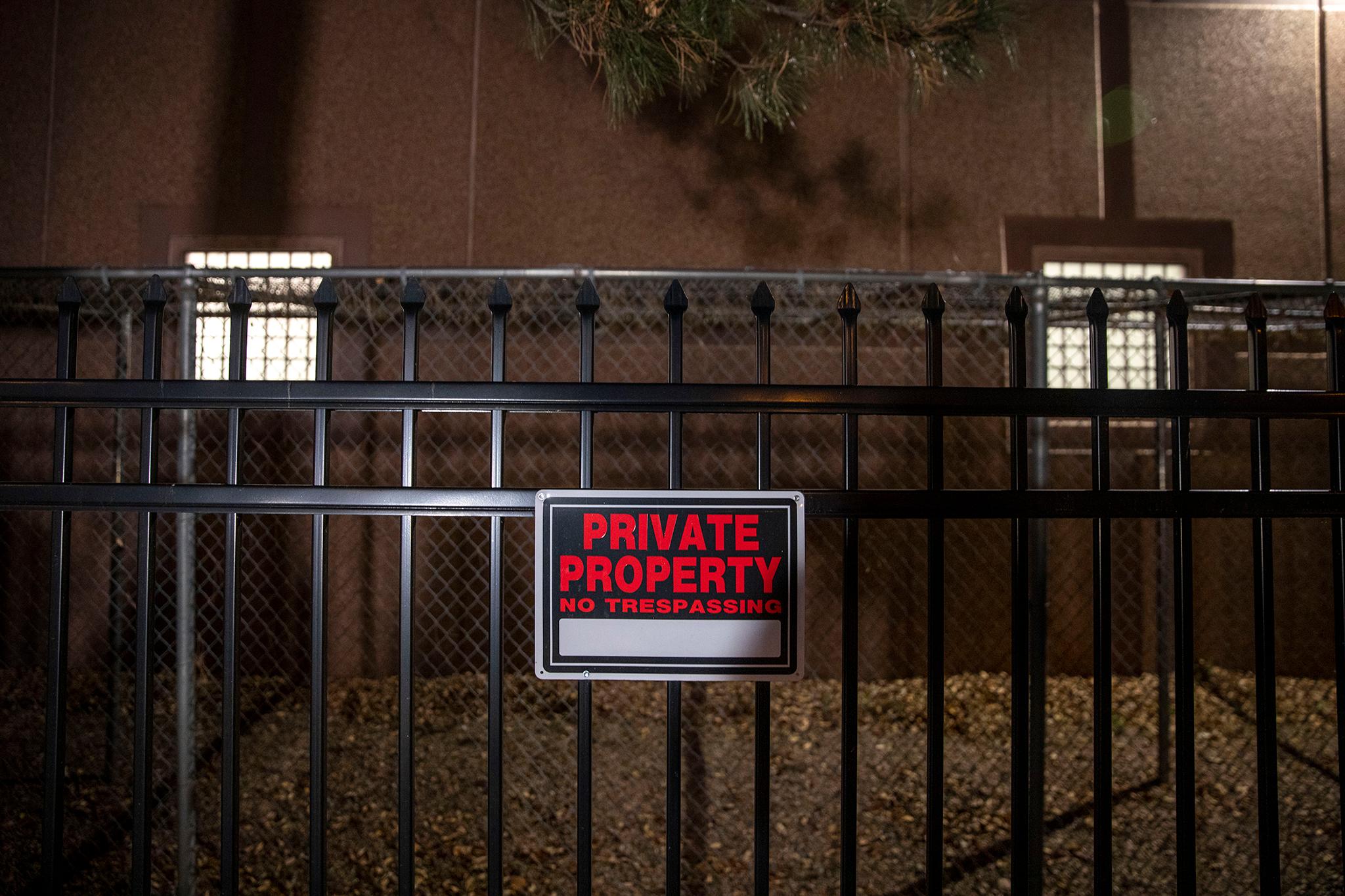
Updated at 8:50 a.m. on Thursday, Aug. 17, 2023
The seven-minute 911 call begins with the Aurora dispatcher asking a simple question: What’s the address of the emergency?
A detention officer for GEO Group’s Immigration and Customs Enforcement Processing Center then spends a minute trying to give a correct response.
“11901 N. Oakland St., ICE Processing Center,” the guard states.
After a few seconds of silence, the 911 dispatcher states there’s a problem.
“Can you give me the address one more time? It’s not populating correctly,” the dispatcher says.
The GEO Group officer then shares a different series of numbers, along with a different street name. Then, he pauses and shouts to a colleague, “What’s the street?” multiple times.
The exchange is one of several moments of confusion during the 911 call in October 2022. The GEO officer made the call after Melvin Ariel Calero Mendoza, a Nicaraguan asylum seeker, collapsed in his dorm area that morning.
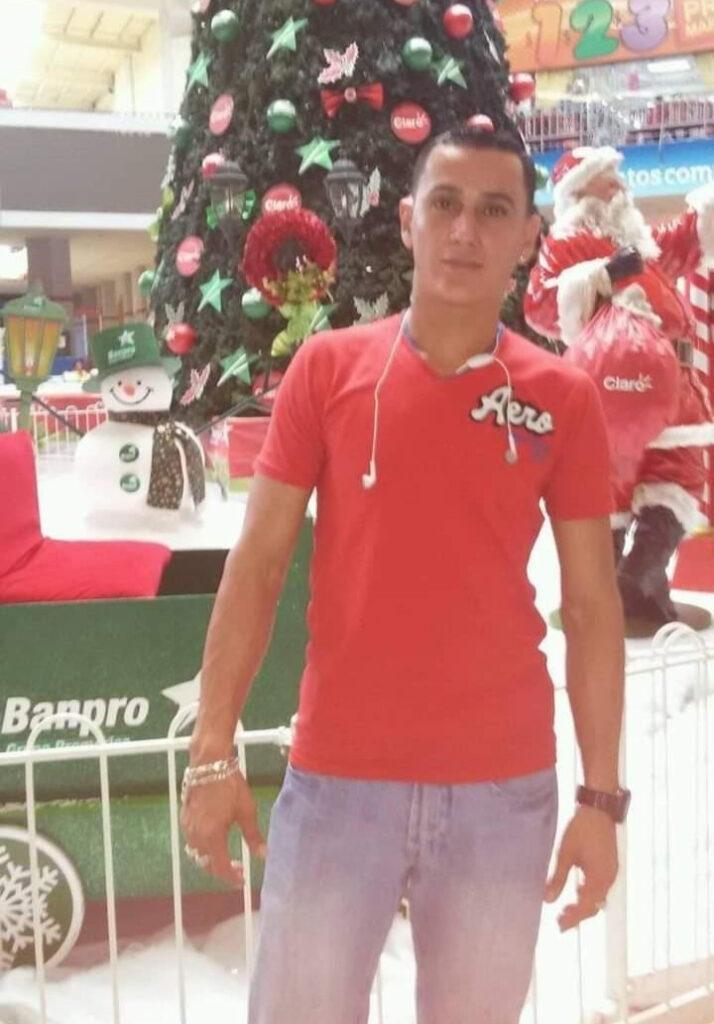
Medical records show the 39-year-old suffered a pulmonary embolism from an untreated blood clot in his leg. He later died at a nearby hospital, making him one of several detainees who died while in ICE custody in Aurora in recent years.
Calero Mendoza’s death has enraged activists and Colorado’s congressional delegation, who have called for more transparency from ICE and GEO Group, one of its contractors. The agency’s Aurora facility houses a population of hundreds of migrants awaiting immigration proceedings.
A recording of the October 911 call was first obtained by NPR and shared with CPR News. NPR also obtained more than 1,500 pages of detention facility inspection reports from the Department of Homeland Security’s Office for Civil Rights and Civil Liberties as part of a broader investigation into private detention conditions.
In a statement, GEO Group declined to answer specific questions about the 911 call. A spokesperson said the company offers its condolences to Calero Mendoza’s family.
“We remain committed to ensuring the health and safety of all those in our custody and care,” the spokesperson said.
A spokesperson for ICE’s Denver Field Office did not respond to a request for comment. Contract facilities are required to provide prompt emergency medical care to inmates, per the agency’s detention standards.
The 911 call recording does not identify the GEO Group officer or include details about Calero Mendoza’s medical care leading up to his collapse. While in detention, he sought medical attention at least three times for pain from a soccer-related foot injury, according to his autopsy and a preliminary death review ICE released last fall.
Timeline of a confusing 911 call
More than one minute into the 911 call, the GEO guard delivers the number of the street as “30th,” but still doesn’t know whether it’s avenue or street. He takes several more seconds to look up whether it’s 30th Avenue or 30th Street – never providing the full correct address listed on ICE’s website to the dispatcher.
At 90 seconds into the call, the dispatcher asks the GEO officer, “What’s going on exactly?”
“They have a code blue, it’s medical,” the officer says.
“What specifically is going on?” the dispatcher asks.
“I'm on patrol, so I don’t know,” the officer says.
The GEO guard then tells the 911 dispatcher to standby and puts them on hold for almost one minute.
When the guard returns, he shouts to a nearby colleague: “Do we want them coming to this side or to the back gate?”
“Just have them come to the back gate,” the officer says, offering no further details to the dispatcher.
“Ok, the back gate,” the dispatcher repeats.
The 911 dispatcher then asks about symptoms of Mendoza, which the officer has no information about.
“I don’t know, I can’t really say,” the officer says.
“Can we guess about how old this person is? This is info I need to know for my paramedics,” the dispatcher says.
“Over the age of 21,” the officer says.
“It just changes everything if they’re like 60 or something,” the dispatcher says.
The officer then puts the call on hold again for one minute. After coming back on the line, he states the inmate is in his “late 40's.”
As the call nears the seven-minute mark, the dispatcher asks for the caller’s job title and for specific directions about accessing the facility. Then the two hang up.
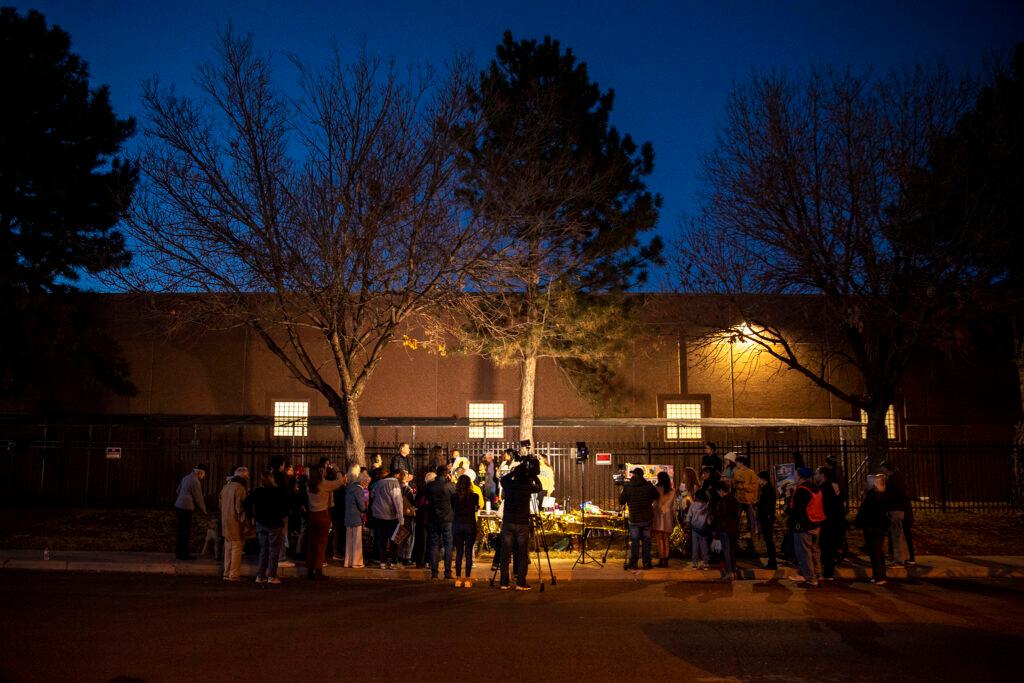
Officers first found Calero Mendoza at 10:49 a.m. on Oct. 13 when he collapsed in his dorm area, according to ICE’s death report. GEO Group health staff found him awake and responsive to verbal commands. Seated on a plastic chair, he appeared pale and had foamy saliva on the corner of his mouth.
Three minutes later, an officer called 911. Paramedics arrived at 11:13 a.m., according to the report. They transported him to the University of Colorado Hospital in Aurora, where he experienced a cardiac arrest and later died.
Elizabeth Jordan, an attorney representing Calero Mendoza’s sister, called the 911 call “shocking.”
“It does not require a huge logical leap to infer that this company, the GEO Group, has not properly trained its staff on how to handle a medical emergency,” she said.
She pointed to a lack of an accurate address, the delay in sharing symptom information and an overall lack of urgency during the call as failings.
“If you're not giving the right address and clear instructions on what to do when you get to the address, the EMS are gonna be running around like chickens with their heads cut off,” she said.
ICE’s own auditors have raised concerns about medical care in the Aurora contract facility for years.
Inspectors with DHS’ Office for Civil Rights and Civil Liberties discovered multiple areas of “poor performance” in the facility which “rise to a level of an unsafe environment of detention,” according to a 2018 inspection NPR obtained during its investigation and shared with CPR News.
The inspector, during a visit to the facility, discovered multiple examples of untreated medical diagnoses among detainees. They included one detainee who tested positive for HIV, but was not told about the diagnosis.
Another detainee had persistent blood in her urine, but hadn’t received a proper investigation into her condition.
“Other examples include detainees who were found to be hypothyroid or diabetic who did not receive care or received inadequate care,” the inspector wrote.
The 2018 report also pointed out a “complete absence of physician leadership,” and referenced the 2017 death of Kamyar Samimi, an Iranian detainee, due to opioid withdrawal.
“The recent death in custody of a detainee with a history of opiate abuse and withdrawal whose condition gradually worsened over two weeks without ever having a face-to-face physician evaluation is a glaring example of how the systemic deficiencies in ADF’s provision of medical care and treatment resulted in significant harm,” the report said.
After Samimi’s death in 2017, Colorado’s Democratic delegation helped pass legislation in Congress that increased visitation at ICE facilities.
In the delegation's letter to ICE’s acting director last fall, Rep. Jason Crow requested an independent inquiry including interviews with detainees who witnessed Calero Mendoza’s condition, as well as a plan to prevent future deaths at the facility.
The findings of that inquiry have not been made public.
In a statement, Crow said the 911 call audio made it “clear that the inability to quickly provide crucial information regarding the patient and facility access led to a delay in the delivery of emergency medical care.”
“My office continues to seek additional information regarding the care provided to Mr. Calero Mendoza and to understand what training is provided to facility staff to respond appropriately to medical emergencies,” Crow said. “Every person deserves to be treated with dignity and respect. My condolences remain with Mr. Calero Mendoza’s family.”
Previous coverage:
- April 18, 2023: Independent autopsy of death at Aurora ICE facility confirms man died of embolism tied to untreated injury
- Feb. 15, 2023: Aurora ICE death autopsy released, raises questions about medical care in federal detention centers
- Nov. 3, 2022: Activists hold Día de los Muertos vigil outside Aurora ICE detention center to demand information on Nicaraguan inmate’s death
- Oct. 27, 2022: Colorado lawmakers call for investigation into death at Aurora ICE facility

